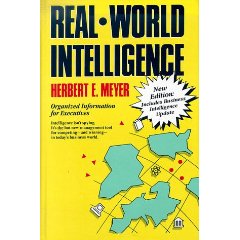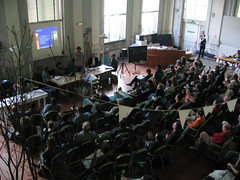
Why Intelligence Keeps Failing (Herb Meyer)
There isn't a chance that these clowns will come up with the right answer, because they're the problem. Simply put, the reason our intelligence service keeps failing to connect the dots is because the officials in charge don't know how. And the blame lies squarely with President Obama — and alas, with President George W. Bush before him — for appointing managers rather than dot-connectors to run our intelligence service.
Our country has no shortage of world-class dot-connectors. They're in politics, in business, at think tanks, in the academic world, and at our leading research institutes. You catch glimpses of them in articles they write, speeches they give — and sometimes even as talking heads on television. Ask a dozen smart people to make lists of people they consider to be world-class dot-connectors, and you'll get a wide range of names, some of which will appear on more than one list. Now, do you really believe that any of these lists will include, say, counter-intelligence chief John Brennan, or CIA director Leon Panetta, or Homeland Security Secretary Janet Napolitano, or Director of National Intelligence Dennis Blair? Are you kidding?
What Our Spies Can Learn From Toyota Luis Garicano and Richard A. Posner
Five and a half years after the report of the 9/11 Commission identified the cascade of intelligence failures that allowed the 9/11 attackers to achieve total surprise, the problems it highlighted persist: We learn of multiple, separate and unshared terrorist lists; of multiple agencies (State Department, CIA and the National Counterterrorism Center) unable to combine the tips they receive; of arbitrary rules, such as requiring proof of “reasonable suspicion,” rather than mere suspicion, to deny a visa to a foreigner; and of terrorists released from American custody to become leaders of al Qaeda abroad. There is the sense that nobody is in charge.



 HAMPTON, Va.–As the military rushes to place more spy drones over Afghanistan, the remote-controlled planes are producing so much video intelligence that analysts are finding it more and more difficult to keep up.
HAMPTON, Va.–As the military rushes to place more spy drones over Afghanistan, the remote-controlled planes are producing so much video intelligence that analysts are finding it more and more difficult to keep up.


